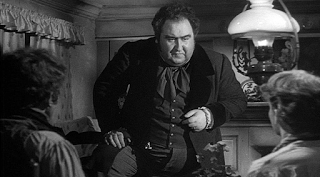“Take nothing on its looks; take everything on evidence. There’s no better rule.” — Mr. Jaggers, Pip’s guardian in Great Expectations by Charles Dickens.
If we had Mr. Jaggers as our guardian and mentor, we would likely be better analysts. A recurring theme this month has been about finding the truth through a focus on data, not commentary. Look to the data and not what is being said. If there is no supporting evidence, discount. If no supporting evidence is provided, then find your own. Markets may be driven by sentiment or perception but ultimately it will discount and respond the evidence.
A perfect example is listening to the Fed versus following the data. Our job as investors is not to fight the Fed or to critique their policies, but to look at the numbers to determine what is the basis for their actions today and what may happen tomorrow. How is the Fed discounting the evidence and how will changes in data affect their actions in the future?
Chairman Yellen says the evidence for action is balanced; yet a deeper look at data may suggest reasons for Fed caution. The Fed may not want to strike fears into the hearts of investors so a signal toward balanced signaling but a delay in action makes sense. Fed policy does not fit the Taylor Rule of growth and inflation discounted against an equilibrium rate. Uncertainty in non-headline employment and inflation is a greater concern.
Similarly, if someone says the equity market is cheap. Have them show the evidence. If someone says the market will go higher, then show the evidence that will cause the market to move higher. There has to be a model and there has to be evidence to support the model.
Could the evidence-based view be taken to the extreme? Not really. If you are looking at macro data that only comes out once a month, then evidence-based opinions just cannot change too quickly. Opinions cannot change faster than the evidence is generated. Additionally, all evidence is not the same. Some data are more important than other evidence. Every opinion does not have to be proven because you do not have to listen to every opinion.

